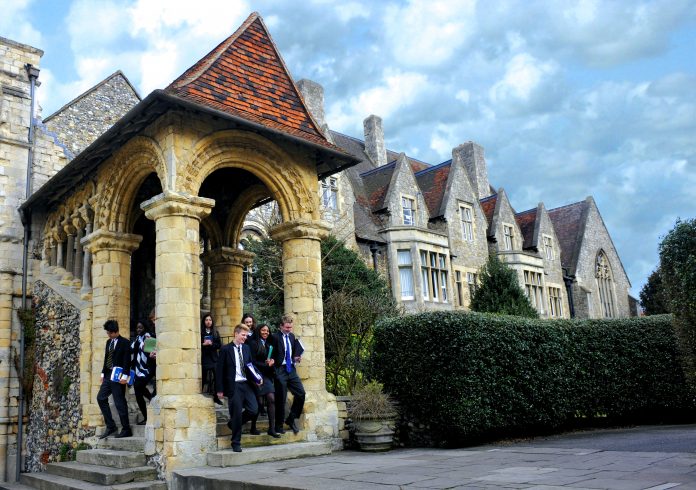Melanie Butler looks at the different kinds of live-in schools
British boarding schools have a long history. The King’s School Canterbury, founded nearly 1,500 years ago in 596AD, is the oldest school in Britain and perhaps the oldest school in the world still in operation.
But despite the image of the historic boarding school along the lines of Hogwarts in the Harry Potter novels, nowadays such schools come in all shapes and cover a wide range of educational approaches.
Indeed, some of them aren’t even schools under English law, because a school is legally defined as an institution educating at least five children under the age of 16 and some institutions educate only those aged 16-plus.
Sixth form colleges, as they are known, only cover the last two years of school, when most students are 16 or over. They exist in the state sector and some, like British Council- accredited Itchen College, take boarders and are licensed to accept international students. In the independent fee-paying sector, many such colleges now take students from 14 or 15. Some, like Concord College, originally enrolled only international students. Others, like MPW, took mostly local British students. Now a new kind of school has emerged. We could call them international high schools, because they typically enrol international and
“The term is used for senior schools which are very old, very posh, very selective and not for profit”
some local students, from age 15 or below, and prepare them for university. Both Concord College and MPW follow this model.
Preparatory schools, or prep schools, cover the other end of the age spectrum. Children enrol from the age of four or five, although few take boarders below the age of seven. Highfield Prep in Hampshire, for example, takes children from age two, but only allows boarders from Year 4, when pupils are nine or 10. Preps prepare children for the entry exams needed to get into most independent senior schools. Pupils move to senior school at 11, the traditional age of entry to girls’ school, or 13, the traditional age of entry for boys’. Entry ages for coeducational schools vary.
Many senior schools run their own prep schools, like St Edmund’s College and Sedburgh, but students going to the senior school usually still have to get the grades.
For international students there is another way to prepare for a senior school in a place designed specifically for students with English as a second language. International study centres, often known as ISCs, teach English language and a number of academic subjects through English.
As well as taking prep school children, they also take older students at 14 or 15 to prepare them to enter a school at sixth form. Some ISC’s are stand-alone schools, like Bishopstrow College. Others are owned and run by independent schools, such as those run by Sherborne, Taunton and – a relatively new one – that at the King’s School Canterbury.
Finally there comes the old question: what is a public school? In reality, the term is used for senior schools which are very old, very posh, very selective and not for profit.
There have been several attempts to come up with a regulated definition. In 1864, the Clarendon Commission drew up a legal definition which covered just seven boys’ schools: Eton, Harrow, Rugby, Winchester, Shrewsbury, Westminster and Charterhouse, but two more which were originally listed –
St Paul’s and Merchant Taylors’ School – sued Parliament to take their names off the list!
In 1944, the Fleming Commission’s Information Service defined them as schools which were members of the Headmasters’ Conference or the Girls’ Schools Association. In 2020, that definition covered 524 schools, not all of them boarding.
Most such schools are affiliated to a church, whether the Church of England, like Westminster, the Catholic church, like St Edmunds and Stonyhurst, or the Methodists or the Quakers. Others, like Bedales, are specifically secular.
Public schools may still be the most prestigious, though, being British, it’s not a label they would ever use. But they don’t necessarily rule the educational roost. Other newer schools, like Cardiff Sixth Form and Concord College, often top the A-level league tables, though many of the traditional schools no longer take part in these tables.
Since the end of the Empire, fewer British people send their children to board and gone is the old tradition of the ‘family’ schools, where generations of sons were sent to the same one. As boarding schools have changed, so have the choices of British parents. Now the fashion is to find the school to fit the child, rather than fitting the child to the school.
Perhaps international parents can learn from this example.





